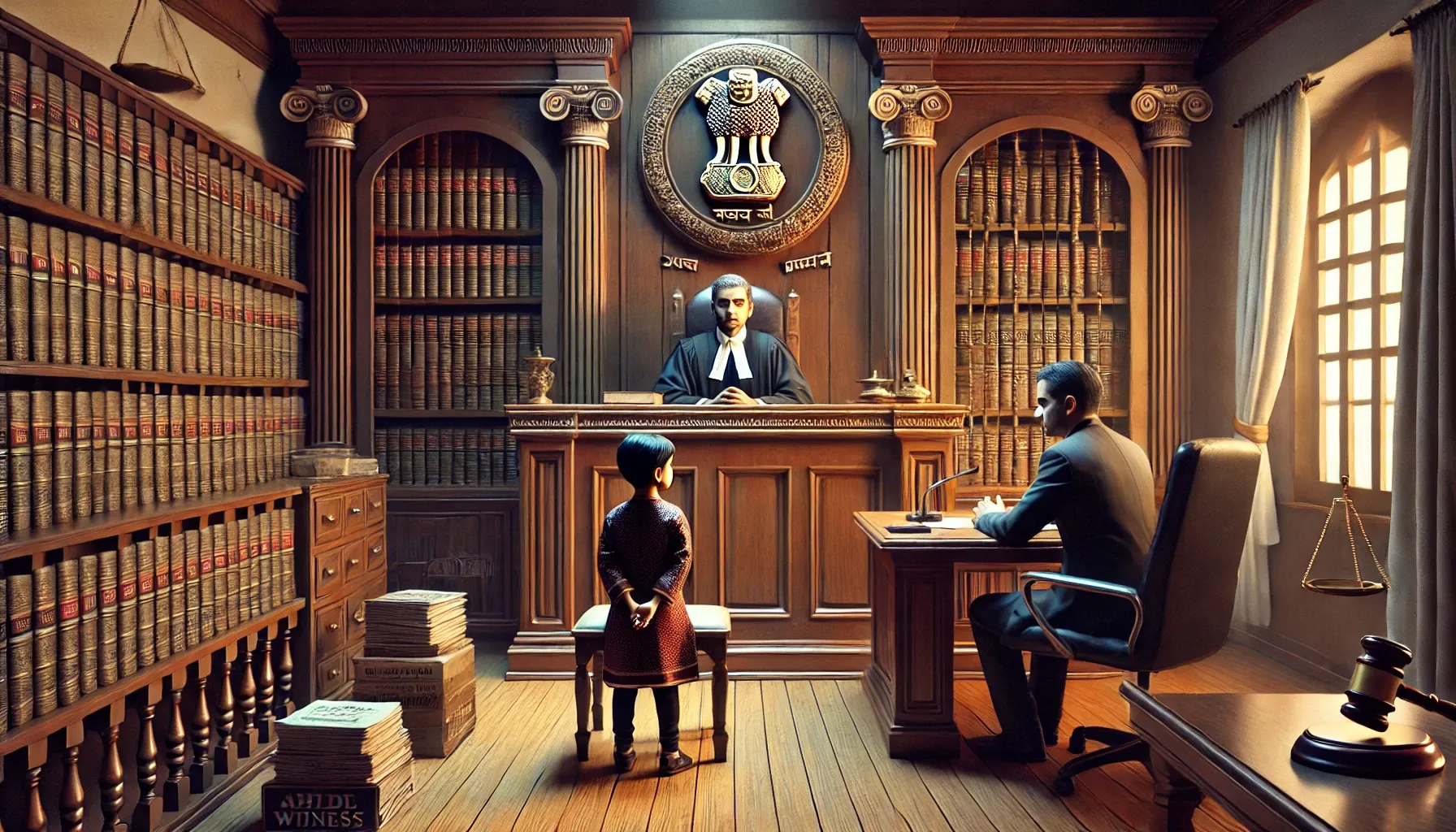The Supreme Court ruled that a seven-year-old’s testimony was credible in a murder case, reinforcing that child witnesses do not require corroboration if their testimony is consistent and reliable.

On February 24, 2025, the Supreme Court of India delivered a judgment, overturning the acquittal of Balveer Singh in the case of the murder of his wife. The Court ruled that the testimony of the accused’s seven-year-old daughter was both credible and admissible, making her evidence crucial in the conviction.
This ruling delves into the complex issues surrounding child witness testimony, offering clear guidelines on how such evidence should be treated by courts in India. The judgment sets a precedent regarding the competency of child witnesses, the potential for tutoring, and the admissibility of their evidence even without corroboration, provided the testimony is reliable.
Key Takeaways From the Judgment
- The Competency of Child Witnesses
“The Evidence Act does not prescribe any minimum age for a witness, and as such a child witness is a competent witness and their evidence cannot be rejected outrightly.” The Supreme Court made it clear that a child is competent to testify if they can understand the questions posed and provide rational answers, as per Section 118of the Evidence Act. - Preliminary Examination by the Trial Court
“Before the evidence of the child witness is recorded, a preliminary examination must be conducted by the Trial Court to ascertain if the child-witness is capable of understanding the sanctity of giving evidence and the import of the questions that are being put to them.” The Trial Court must ensure that the child witness understands their duty to speak the truth and can provide coherent responses. - Recording of Demeanour and Evidence
The Court emphasized that the demeanour of the child witness during the deposition and cross-examination must be recorded. If the child’s evidence inspires confidence and is coherent, it may form the basis of a conviction without the need for corroboration. If there are doubts, however, the Trial Court must record whether the testimony appears to be voluntary or influenced by others. - Reliability of Child Witness Testimony
“There is no requirement or condition that the evidence of a child witness must be corroborated before it can be considered.” The Supreme Court held that if the testimony is credible, consistent, and has been scrutinized carefully for possible tutoring or discrepancies, it can be relied upon, even without additional evidence. - Handling of Tutored Testimony
“Child witnesses are considered dangerous witnesses as they are pliable and liable to be influenced easily.” The Court cautioned that courts must be vigilant against the possibility of tutoring or influencing the child’s testimony. If the evidence suggests tutoring, the Court can choose to discard it, especially if there are improvised details or contradictions in the testimony. The Testimony of a child witness is unreliable only if substantial evidence shows it was fabricated or influenced by external factors. - Conclusion on the Case at Hand
The Supreme Court reviewed the case of Balveer Singh, who was accused of murdering his wife and later cremating her body in secret. - The Trial Court had convicted him under Sections 302 (murder), 201 (causing disappearance of evidence), and 34 (common intention) of the Indian Penal Code (IPC), but the High Courthad acquitted him. Upon reviewing the seven-year-old daughter’s testimony, which recounted how she saw her father assaulting her mother, the Supreme Court overturned the acquittal.
- The Court found no credible evidence of tutoring or delay in her statement that would undermine her reliability.The Court concluded that her testimony, though coming from a child, was consistent, coherent, and reliable, thereby leading to the accused’s conviction.
Detailed Summarization of the Supreme Court’s Ruling
- Competence of Child Witnesses
According to Section 118 of the Evidence Act, a child witness is competent if they can understand the nature of the questions posed and provide rational answers. Courts should not reject child testimony solely based on age. - Preliminary Examination and Demeanour
Courts are required to ensure that a child witness understands the sanctity of testifying and is capable of answering questions in a coherent manner. The demeanour of the child during the testimony must be observed and recorded to ensure no undue influence is exerted. - Admissibility Without Corroboration
The Supreme Court clarified that there is no blanket requirement for corroboration of a child witness’s testimony if it is credible, even if the child’s testimony was not corroborated by other evidence. - Caution on Tutoring
The Court emphasized that child witnesses are particularly vulnerable to tutoring. The evidence of a child witness may be discarded if there is a clear indication of influence or fabrication.
Background of the Case
- The case revolved around Balveer Singh, who was accused of murdering his wife, cremating her body in secrecy, and subsequently misleading authorities. The Trial Court convicted him, but the High Court of Madhya Pradesh acquitted him, prompting the State to appeal to the Supreme Court.
- The key issue before the Supreme Court was the reliability of the testimony of the couple’s seven-year-old daughter, Rani, who was the only eyewitness to the murder. Her testimony described in detail the assault by her father on her mother and the subsequent cremation of her body.
- Despite the High Court’s concerns over the delay in recording her statement, the Supreme Court found her testimony consistent, credible, and untainted by tutoring.
- The Court reaffirmed that child witnesses, if properly examined for competence, can provide critical evidence in criminal trials.
Case Title: THE STATE OF MADHYA PRADESH VERSUS BALVEER SINGH
Attachment:





